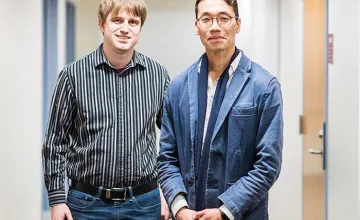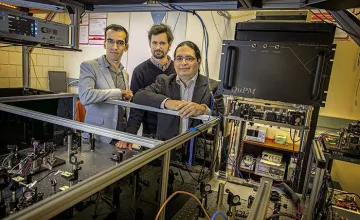As our society grows increasingly dependent on electronic networks for managing everyday life, running our economy, and defending the nation, cybersecurity has become one of our most pressing challenges.
Can we protect the power grid, telecommunication networks, financial data, “smart” products, and our private information, while still enjoying the benefits technology affords us?
AAU universities are helping answer that question, leading the way with multidisciplinary research, technology development, and education.

Martin Swany, a professor and chair of the Department of Intelligent Systems Engineering at Indiana University Bloomington, answers questions about his work with thermal imaging and electromagnetic probes.

Two Boston University computer scientists have developed a tool that could make it harder for hackers to find their way into networks where they don’t belong.

Researchers at Stanford University have developed a new system for aggregating usage reports from personal devices that emphasizes maintaining the user's privacy.

A team of researchers at Stony Brook University has developed a technology and prototype device based on quantum mechanics designed to prevent network hacking.
Explore More: Safeguarding the Connected World
You can sort by specialty area and/or by university.
USC ISI researcher Wael Abd-Almageed and an international research team are building enhanced biometric security technologies to thwart would-be malefactors.
Two Boston University computer scientists have developed a tool that could make it harder for hackers to find their way into networks where they don’t belong.
Researchers at Stanford University have developed a new system for aggregating usage reports from personal devices that emphasizes maintaining the user's privacy.
A team of researchers at Stony Brook University has developed a technology and prototype device based on quantum mechanics designed to prevent network hacking.
Stony Brook University - The State University of New York | Protecting Systems | Safeguarding the Connected World
University of Florida Professors Daniela Oliveira and Natalie Ebner have teamed up to protect older adults from a form of social engineering called phishing.
Protecting Consumer Products | University of Florida | Safeguarding the Connected World | University Research
